The 2023 Health Disparities Grants have been awarded to care teams that aim to provide more care options for postpartum patients, develop a free orthopedic screening and treatment clinic, and enhance the capabilities of a free eye clinic for people with preventable causes of blindness.
This pilot funding program was established to address health disparities within the local community and among patients at University of Iowa Hospitals & Clinics. Investigators for the selected yearlong projects will each receive $100,000 in funding from the Office of Health Parity and the Office of the Vice President of Medical Affairs. Funding began March 13.
Project titles and descriptions:
Determining postpartum contraceptive needs and improving access for uninsured patients
Family medicine faculty and resident physicians will now offer more contraceptive options for uninsured patients who have recently given birth. Emerging data from other health centers show that when postpartum care is covered, it can reduce infant mortality and maternal complications. With this data in mind, the family medicine team currently offering free prenatal and postpartum care at the Iowa City Free Medical and Dental Clinic (FMC) will offer patients an expanded variety of contraceptive methods at no cost.
Routine prenatal care includes screening patients to assess their postpartum family planning preferences and provide counseling on different care options. Materials are offered in multiple languages, and interpreters are also available during appointments.
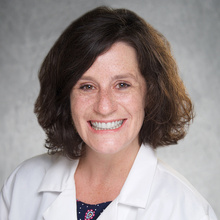
This group, led by Meghan Connett, MD, will identify two groups of patients receiving care through the FMC. They will review postpartum patients followed two years prior to this project and those followed after project implementation to track patient satisfaction, family planning preferences, and the percentage of patients with subsequent pregnancies within a short interval.
Faculty: Meghan Connett, MD (primary investigator); Alka Walter, MBBS; Wendy Shen, MD (faculty mentor)
Department: Family Medicine
Improving orthopedic health care through a community-based free clinic for an uninsured and underserved population in Iowa
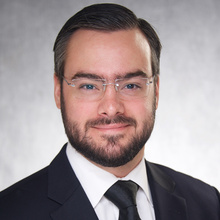
From 2020 through 2022, roughly 15% of patients seen at the FMC had orthopedic-specific concerns. But many of the effective treatment plans require a multimodal approach, including advanced imaging (X-ray, CT, MRI), conservative measures (medications; physical therapy; rest, ice, compression, elevation, or RICE, protocol; and surgical treatment. Although effective, these treatments do not account for the socioeconomic determinants of health that are known to impact access to proper care and disproportionately affect vulnerable groups.
For those with treatable causes of orthopedic mobility loss, providing access to accurate diagnosis while decreasing financial and logistical barriers to necessary treatment are important for minimizing the impact of orthopedic injuries, including the inability for patients to keep their jobs and have a good quality of life.
A team of providers from the Department of Orthopedics and Rehabilitation—led by Joseph A. Buckwalter, MD, PhD—will offer free ambulatory surgical procedures in the FMC, focusing on minimally invasive procedures that can be completed safely in a clinic setting under local anesthesia—such as carpal tunnel release and trigger finger release procedures.
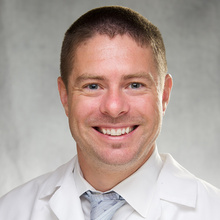
The grant funding will also cover necessary imaging studies to confirm common orthopedics injuries.
The group plans to collect data from all patients who use this orthopedic service once a month to better understand the impact of this project.
Faculty: Joseph A. Buckwalter, MD, PhD (primary investigator); Ignacio Garcia Fleury, MD; Maria Bozoghlian, MD; Momin Nasir; Benjamin Miller, MD
Department: Orthopedics and Rehabilition
Surmounting barriers to care and ensuring sustainability of a treatment for preventable blindness in a largely uninsured population through a community-based free clinic
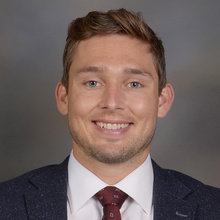
Using funds from a 2022 Health Disparities Grant, a group from the Department of Ophthalmology and Visual Sciences developed a safe, effective model to treat the two most common causes of blindness—cataracts and diabetic retinopathy—at no cost to patients in the FMC. During the one-year grant period, the group coordinated 11 ophthalmology clinics within the FMC with 142 unique patient visits.
Using a retina camera purchased through grant funds, they obtained 598 retinal photographs and 118 optical coherence tomograms. This technology enhanced the clinic’s diagnostic and progression-tracking abilities for vision-threatening diseases. They performed approximately 30 retinal laser treatments for patients with vision-threatening diabetic retinopathy. Additionally, they held a free cataract surgery day at the Ambulatory Surgery Center at UI Hospitals & Clinics Hospital, and four patients underwent cataract surgery at no cost.
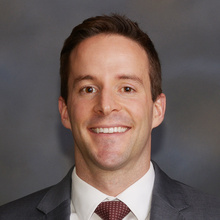
This new grant will help resolve remaining care gaps unique to the FMC ophthalmology clinic by funding new equipment. For example, the group was unable to help FMC patients with vitreous hemorrhage (VH), a common cause of vision loss in diabetic retinopathy, without ultrasonography, a technology not currently available at FMC. Patients with VH are being sent to the emergency department for imaging, which causes delayed care, additional costs to the patient, and additional strain on the health care system. There is also currently no autorefractor available at the FMC, so patients requiring a refraction receive a more time-consuming manual refraction, decreasing the number of FMC eye patients seen per clinic day. Both pieces of equipment will be added with the aim of increasing efficiency and improving access to care.
Additionally, the group plans to find more cost-saving strategies and open philanthropic pathways to drive long-term funding for services such as the free cataract surgery and laser program.
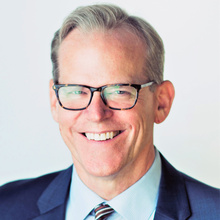
Team members: Sean Rodriguez, MD; Zachary Mortensen, MD, MBA; Cy Lewis, MD, MPH; Paige Noble; Arnulfo Garza, MD; Joanna Silverman, MD; Cheryl Wang, MD; Tirth Shah, MD; Andrew Pouw, MD (faculty mentor); Thomas Oetting, MD, MS (primary investigator); Jaclyn Haugsdal, MD; Chris Fortenbach, MD, PhD; Ian Han, MD; Pavlina Kemp, MD; Keith Carter, MD
Department: Ophthalmology and Visual Sciences